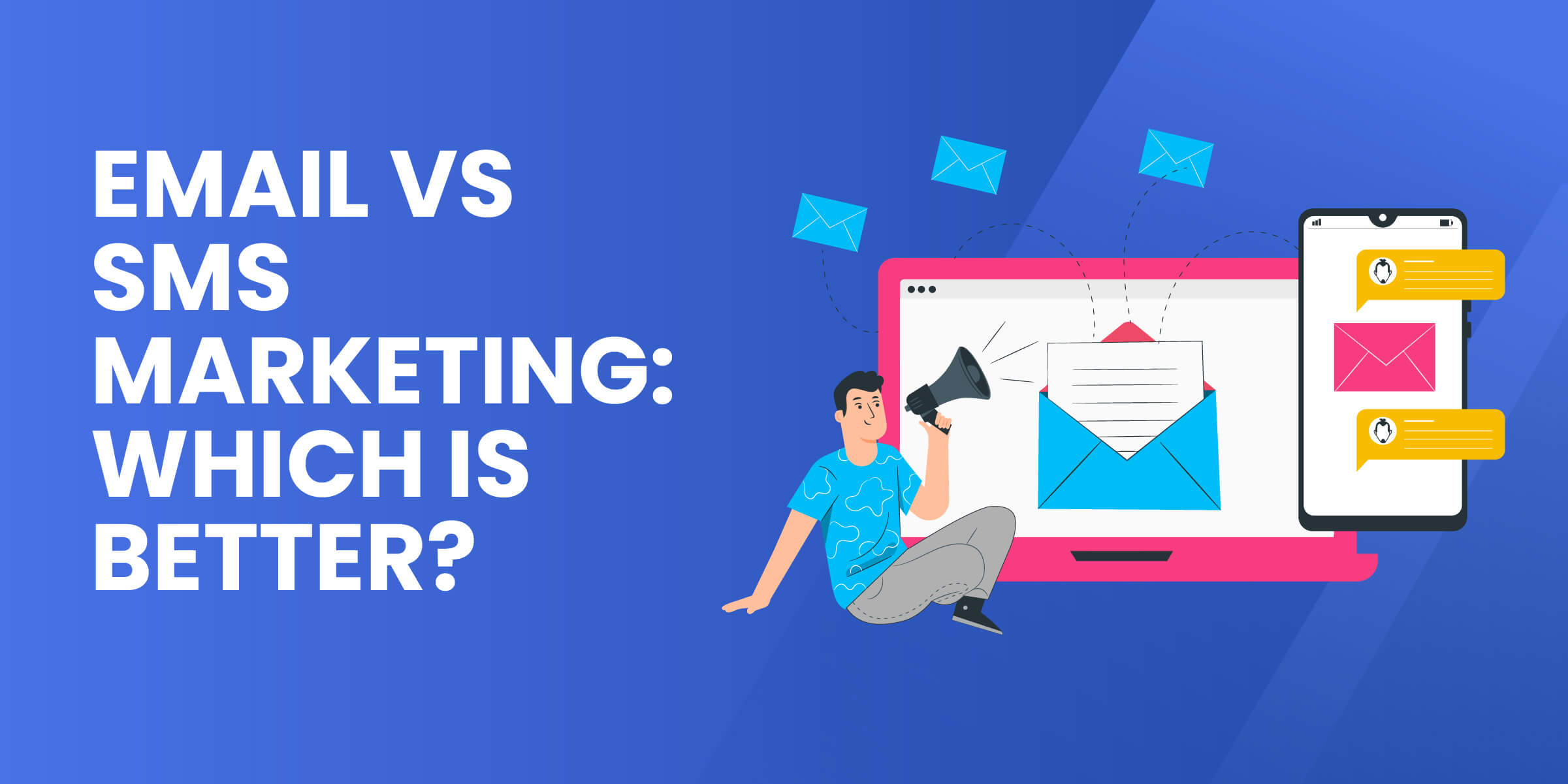To email or to SMS? That is the question.
Both methods have their advantages and disadvantages when used in marketing, so understanding the difference between them can help you decide which one will be more effective in reaching your target audience.
Let’s explore both options as well as discuss best practices for combining email and SMS marketing while also looking at legal considerations you should keep in mind.
We offer this website completely free to our visitors. To help pay the bills, we’ll often (but not always) set up affiliate relationships with the top providers after selecting our favorites. However, we do our best not to let this impact our choices. There are plenty of high-paying companies we’ve turned down because we didn’t like their product.
An added benefit of our relationships is that we always try to negotiate exclusive discounts for our visitors.
Email Marketing


Email marketing is a powerful tool for businesses to reach potential new customers and build relationships with existing ones.
It can be used to provide helpful advice, promote special offers, give updates, announce special events or sales, collect reviews from customers, and increase brand awareness.
Benefits of Email Marketing


Emails can also be personalized based on customer preferences or past purchases, which helps create a more targeted message that resonates better with consumers.
Furthermore, it allows businesses to track metrics such as open rates and click-throughs so they can measure how successful their campaigns are over time.
Challenges of Email Marketing


Spam filters may block legitimate emails from reaching their intended recipients, which could lead to lost opportunities or sales if not addressed properly.
Additionally, consumers may become overwhelmed by too many promotional messages in their inboxes, leading them to unsubscribe from mailing lists altogether.
Most importantly, people… don’t open their emails all that much. If they see an email that is clearly for marketing purposes and doesn’t have an eye-catching subject line, they’re likely to send it to the trash before even opening it.
The key to getting an open rate up? Come up with a compelling subject line. Something unique and eye-catching will make your emails seem more appealing and will make customers more likely to open your email instead of trashing it immediately.
If you don't think you can do this on your own and would like to hire some help, take a look at the skills email marketers need to have before you dive into that adventure.
SMS Marketing
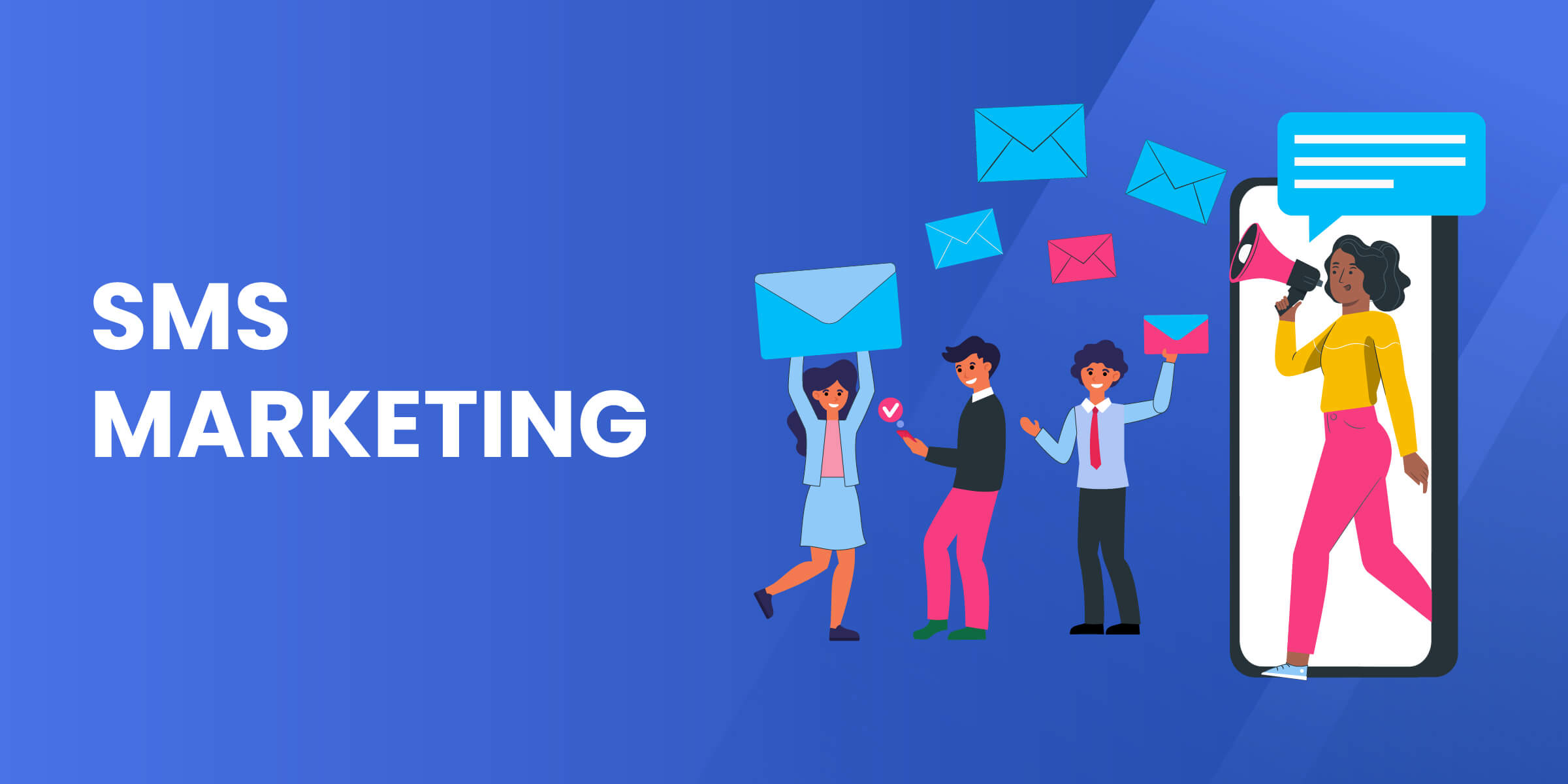

With SMS marketing, businesses can send promotional messages directly to customers’ phones in an instant.
Similarly to email marketing, SMS marketing can be used to send special offers, announce new deals or special events, send important reminders, and even update customers on their order status.
Benefits of SMS Marketing
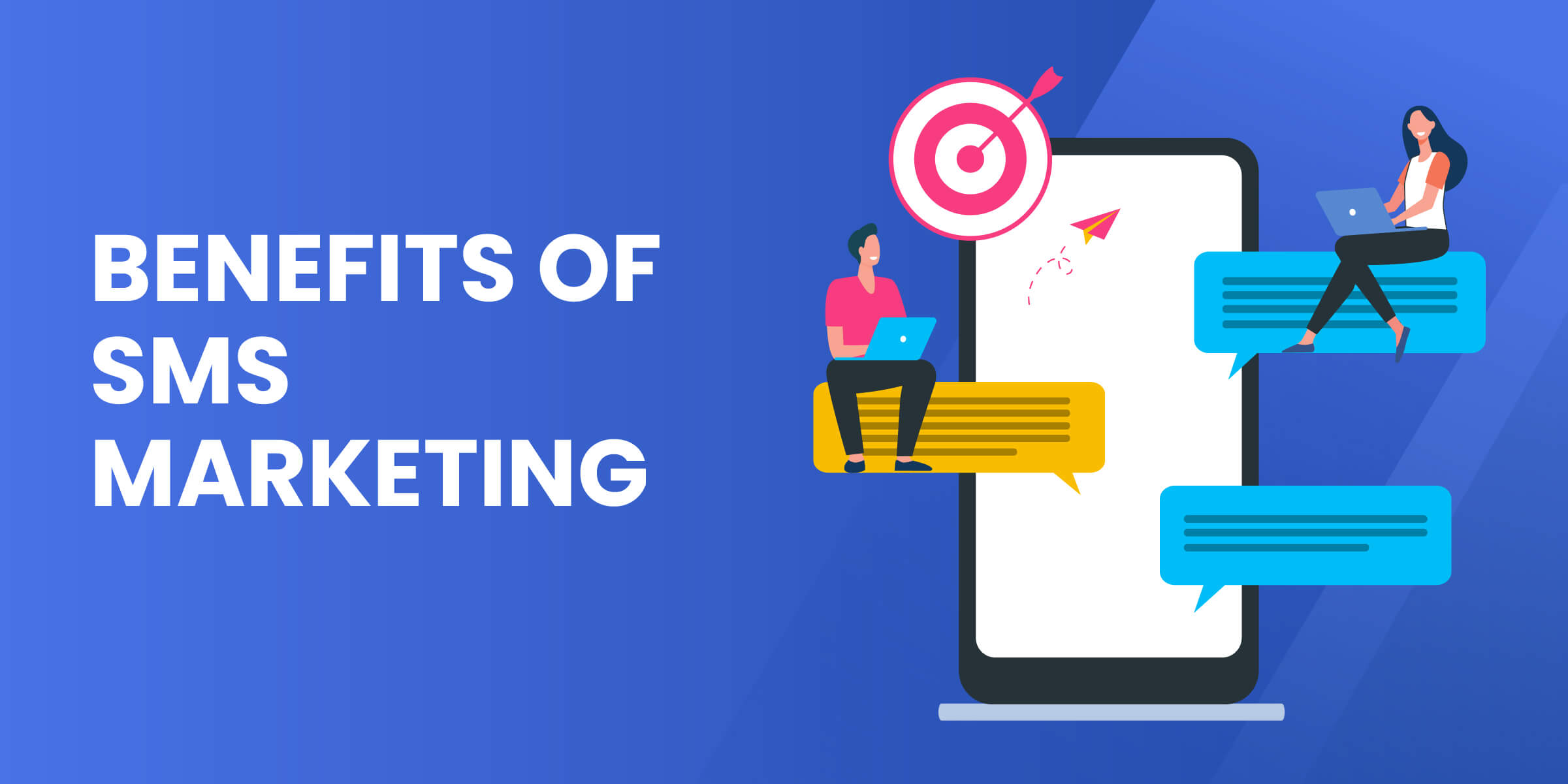

This is because SMS is so casual and direct. Your customers are likely getting fewer text messages than they are emails, so they stand out more.
Texting also creates a sense of urgency and is more likely to elicit immediate action and response.
Challenges of SMS Marketing
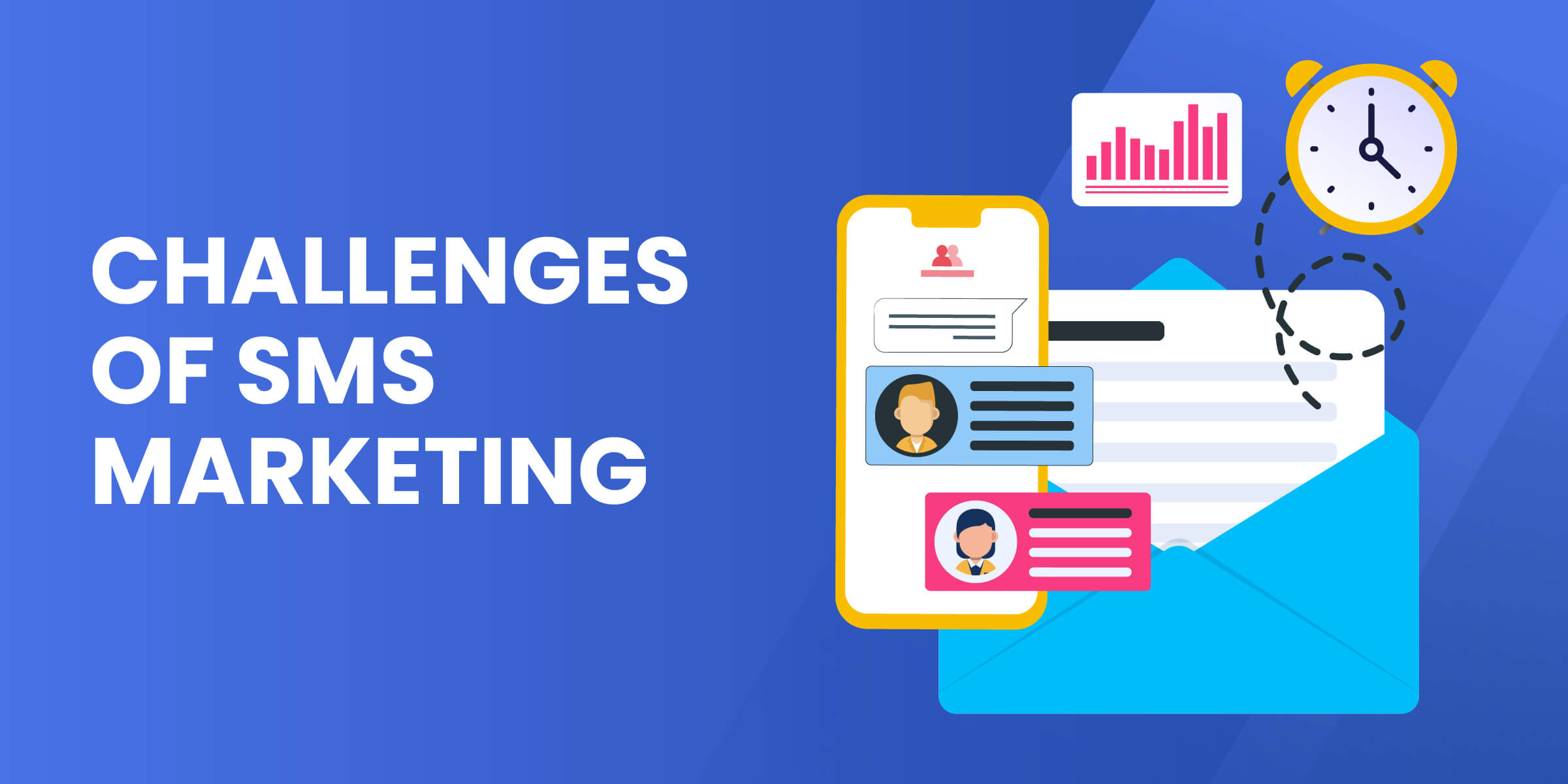

Since text messages must be kept short due to character limits (160 characters or less), they may not always provide enough information about a product or service for potential customers to make an informed decision on whether or not they want to purchase it.
We’ll get into SMS privacy laws a bit later, but there are a few more strict regulations placed on SMS marketing than other marketing channels.
Lastly, consumers may opt out of receiving texts if they find them too intrusive or annoying, which could lead to decreased engagement rates over time.
Timing is key when sending out texts; try sending during peak hours so that your message stands out amongst others received by potential customers throughout their day-to-day lives. This will increase the chances of engagement and ensure successful campaigns when using this type of marketing.
Comparison of Email and SMS Marketing
When deciding between email and SMS marketing for your business, it is important to consider cost, reach potential, open rates, response rates, and urgency.
Email campaigns are generally more affordable than SMS messages due to bulk sending capabilities and have a wider reach potential since emails can be forwarded.
However, SMS messages offer higher open rates and response rates as well as immediacy, which may be preferable when time-sensitive information needs to be communicated quickly.
Cost
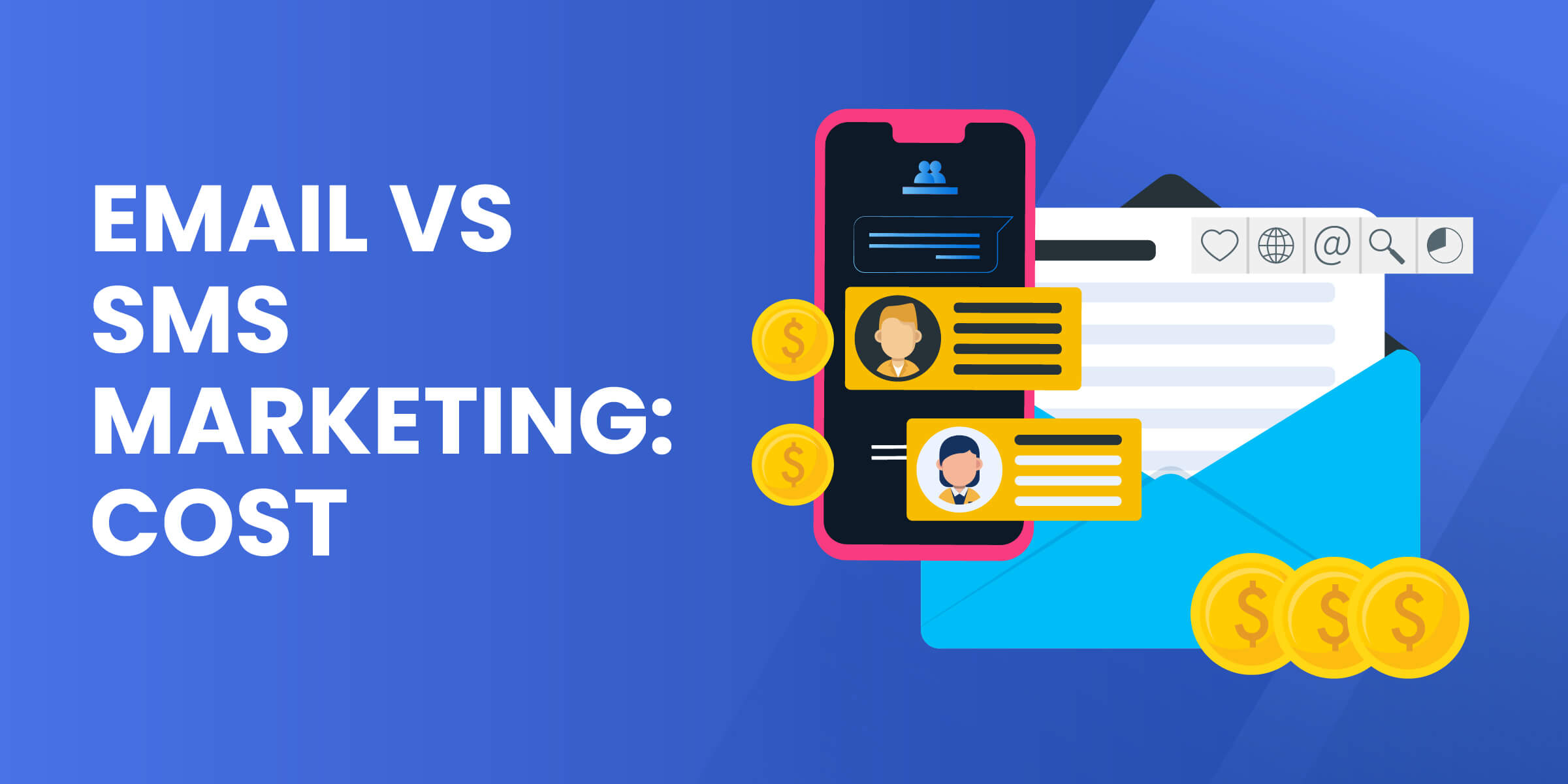

Email campaigns can be sent out in bulk at a much lower cost than SMS messages, which are typically charged per message. This makes email ideal for larger campaigns that require reaching many people quickly and efficiently.
Open and Response Rate
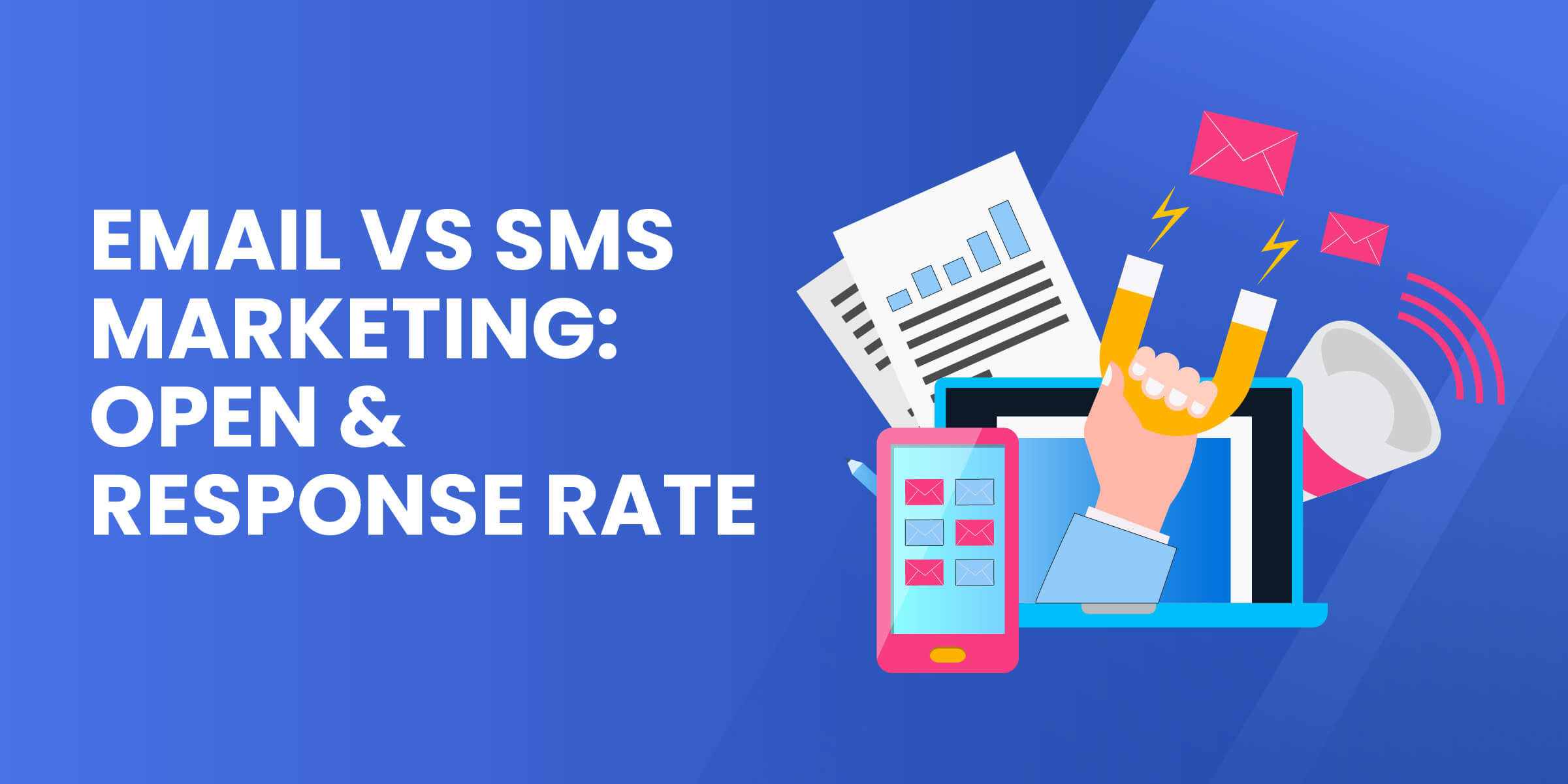

SMS also allows for direct communication with customers on their phones within seconds of sending the message, making it better at facilitating two-way conversations and a higher response rate.
Reach
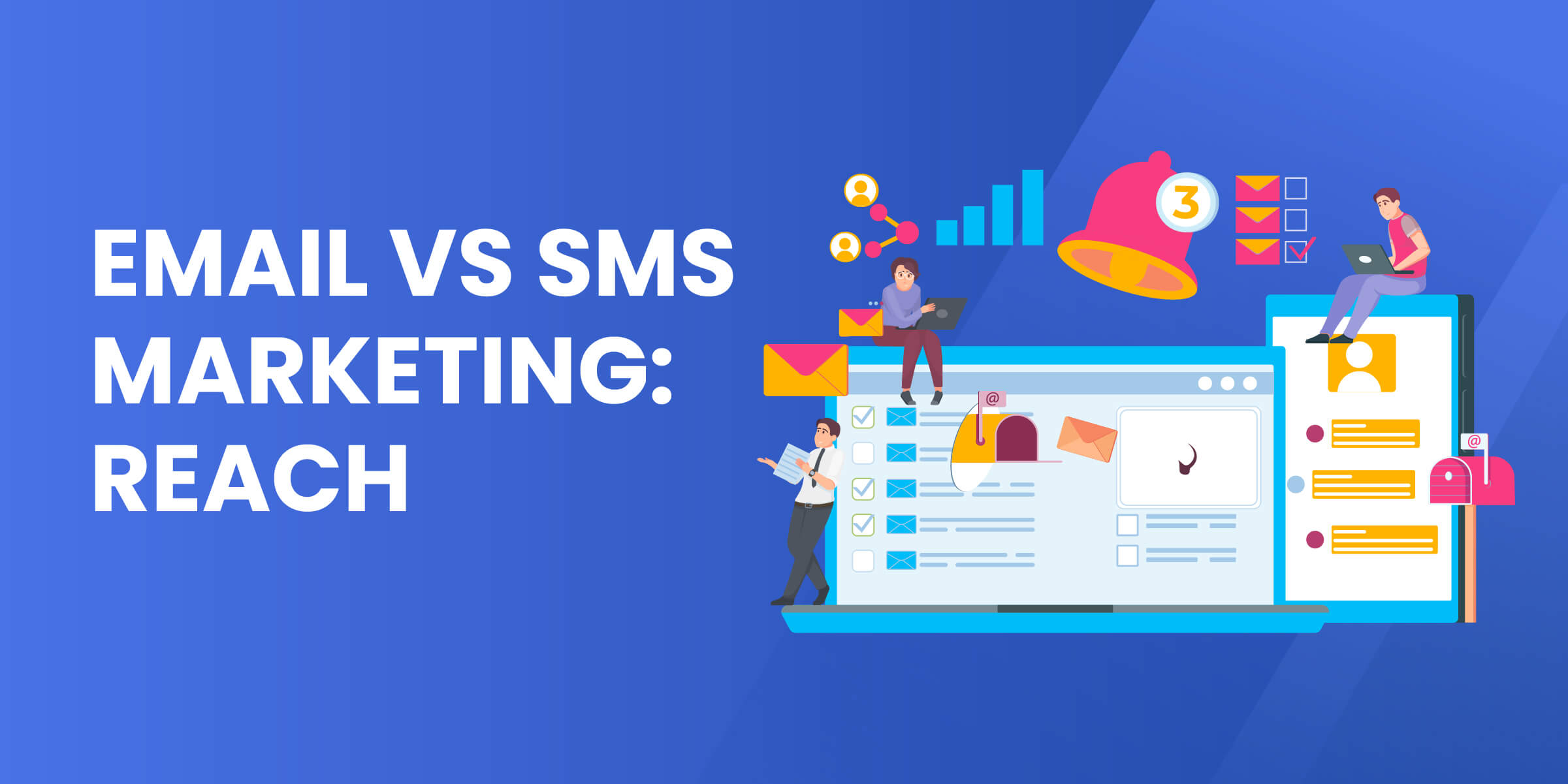

Email marketing has a much wider reach potential since emails can easily be forwarded from one person to another while text messages cannot unless manually copied over into an email or other messaging platforms such as WhatsApp or Facebook Messenger.
However, when considering opt-in lists for either type of campaign, SMS will likely have a smaller list size due to its limited character count compared to emails which allow for longer copy and more detailed content delivery options like images or videos embedded in them.
Urgency


If you want something with more detail, however, then using an email might suit your needs better since there is no character limit like there is with texting services and visuals can also be included.
Best Practices for Combining Email and SMS Marketing


When combining email and SMS marketing, it is important to consider the best practices such as segmentation strategies, timing considerations, and content strategies.
Segmentation Strategies
Segmentation is an important part of any email and SMS marketing campaign.
By segmenting your audience, you can target specific groups with more relevant messages. For example, if you are targeting car buyers, you could create separate segments for first-time buyers and experienced buyers. This will allow you to tailor the messaging to each group’s needs and interests.
You can also use demographic data such as age or location to further refine your segments.
Timing Considerations
Timing is key when it comes to email and SMS marketing campaigns.
It’s important to consider when people are most likely to be checking their emails or texts to maximize engagement with your message. For example, sending out a promotional offer during peak hours on weekends may result in higher open rates than sending it during weekday work hours when people may not have time or access to check their emails or texts regularly.
Calls-To-Action
Messages should also include clear calls-to-action that encourage recipients to take action immediately after reading the message (e.g., “Visit our website now”).
Additionally, including incentives such as discounts or freebies can help increase engagement with the message even further by providing readers something extra they wouldn't get otherwise from other sources like traditional advertising methods (e.g., TV ads).
A/B Testing and Tracking Metrics
To maximize the effectiveness of your email and SMS marketing campaigns, you need to figure out what works.
This means testing out different versions of SMS and emails to see which speaks to your audience better.
SaaS tools that facilitate more efficient SMS and email marketing also offer tools that allow businesses to see the response and open rates for marketing messages. Tracking these metrics to see what works and then fixing what doesn’t work is the best way to ensure success in your SMS and email marketing campaigns.
Legal Considerations for Email and SMS Marketing
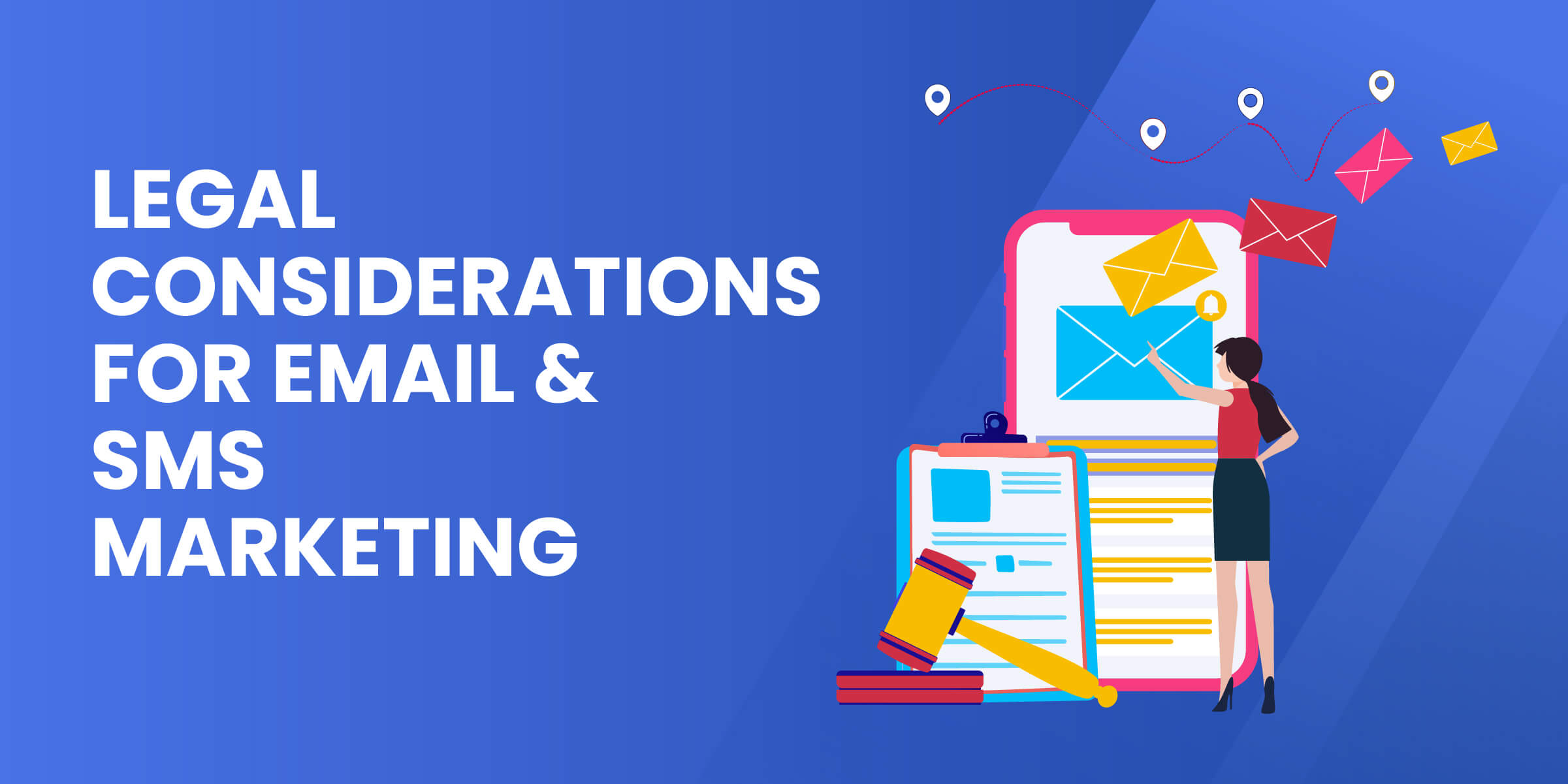

Your marketing campaigns need to be compliant with laws like the CAN-SPAM Act, GDPR, and TCPA, or else you could risk legal consequences.
CAN-SPAM Act Compliance
The CAN-SPAM Act of 2003 sets forth rules for commercial email messages sent in the United States.
These rules require that emails include accurate sender information, a valid physical address, an opt-out option, and clear subject lines.
Failure to comply with these regulations can result in hefty fines from the Federal Trade Commission (FTC).
Businesses should ensure their email messages meet all requirements set forth by the CAN-SPAM Act before sending them out.
GDPR Compliance
The General Data Protection Regulation (GDPR) is a European Union law that applies to any organization collecting or processing the personal data of EU citizens regardless of where they are located geographically.
This means that even if your business is based in the US but has customers who live in Europe, you must comply with GDPR when sending out emails or SMS messages related to those customers’ data.
This includes providing clear notice about how customer data will be used and allowing individuals to access their own data upon request as well as deleting it upon request if desired by the individual.
TCPA Compliance
The Telephone Consumer Protection Act (TCPA) regulates automated telephone calls made for marketing purposes within the US including text message campaigns sent via SMS marketing platforms such as Text Magic and Simple Texting.
To remain compliant with TCPA regulations, your business should obtain prior express written consent from recipients before sending automated phone calls or text messages for marketing purposes as well as provide an easy way for recipients to opt out of future communications at any time.
FAQs
Which is better SMS marketing or email marketing?
Neither SMS nor email marketing are inherently “better” than the other, but SMS ensures a higher open rate (98%) while email marketing allows for a larger reach and more detailed messaging. It’s best to use both in your marketing strategy.
Is SMS or email more effective?
SMS is more effective for providing short, immediate notifications while email is more effective for longer-form content like detailed reviews and comparisons, special offers, and newsletters. Both methods can be used to effectively reach potential customers.
What is email and SMS marketing?
Email and SMS marketing are forms of digital marketing that involve sending promotional messages to customers via email or text message.
What is the difference between SMS and email?
SMS is a text-based service that allows users to send short messages up to 160 characters long from one mobile device to another while email is an internet-based service that allows users to send longer messages with attachments such as images or documents.














